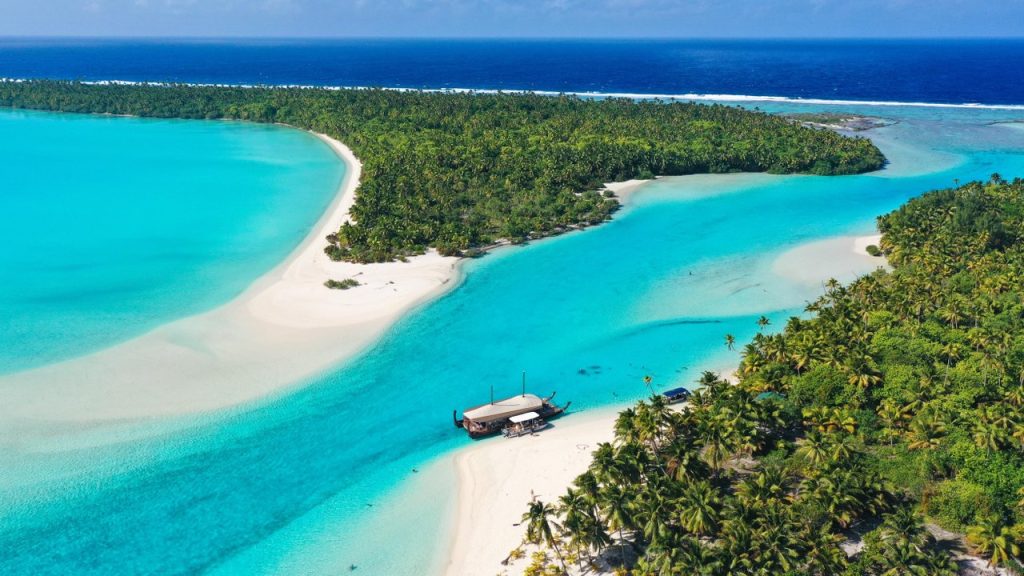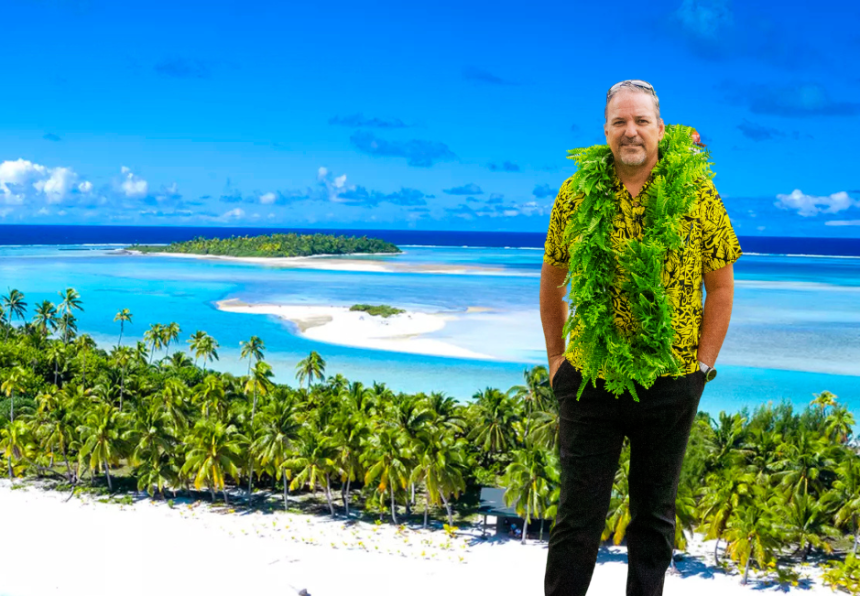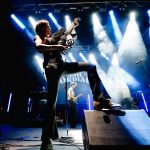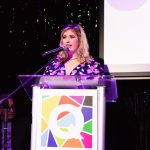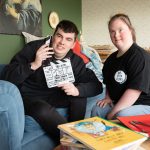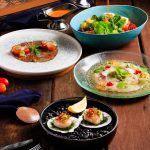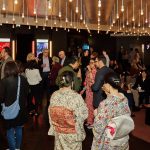Aitutaki is home to approximately 1800 people and quite probably the world’s most beautiful lagoon, which contains 15 stunning motus. It’s 220 kilometres or a 50-minute flight from Rarotonga, the main island of the Cook Islands.

Nick Henry comes from a family that have long had political connections- in 1965 his grandfather Albert Henry, also known as Papa Arapati, became the first Premier of the Cook Islands. Nick has had a long career in hospitality, running resorts as well as radio stations on Rarotonga & Aitutaki. In 2011 he set sail from Rarotonga and went across the Pacific for 18 months on the traditional voyaging canoe Marumaru Atua, taking in the Marquesas, Hawaii, San Francisco, the Galapagos, Tahiti, Samoa, Fiji, Vanuatu, Solomon Islands and Tuvalu. He saw plenty of ocean and plenty of pollution on that trip, and says he really became aware then of the difference between the North and the South Pacific Ocean.
Now he’s not only back on his grandfathers home island of Aitutaki, working in the family resort and raising a family with his wife Diane, and sons Harry and Arapati, he’s moved back into the other family business – politics. Nick became Mayor of Aitutaki in October 2024, and Irresistible chatted to him at the 2025 South Pacific Tourism Exchange in Nadi, Fiji, about his big plans for the island, and the strength he sees in the next generation.
You’ve been the Mayor of Aitutaki since late last year. Have you had other roles in local government before alongside other jobs?
I’ve been on a number of our government boards, mostly around investments into the Cook Islands. As our economy has matured, the need for foreign investment has now reduced. The litmus test of a successful industry for me is who owns it. In Aitutaki, there’s over 100 businesses operating in the tourism industry, and only three have foreign ownership. It means that we’re working for ourselves.
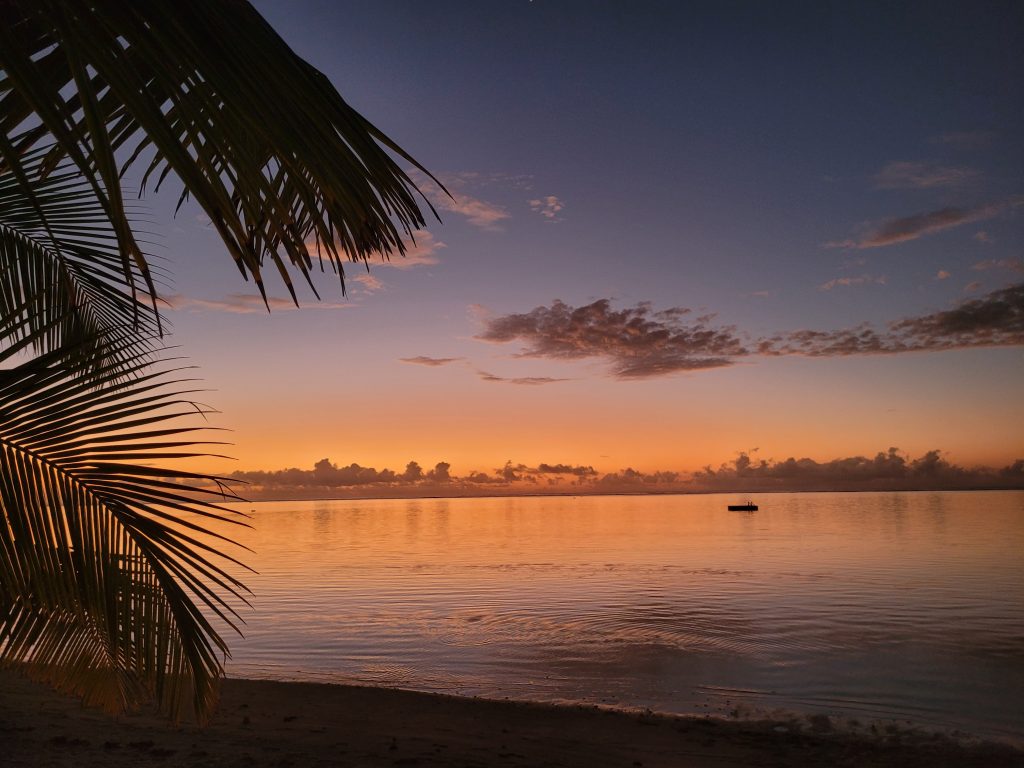
That’s very impressive to have only 3 overseas owned businesses.
I think that Aitutaki has an opportunity to show other Pacific islands and small communities how tourism can work positively for the people that live there. I’m hoping that within a decade, it’ll all be locally owned. We have families who are more confident in entering and managing their own business. That’s the beauty about working for other people first– make mistakes with their money. Then when you are ready you can do your own thing. On Aitutaki today they’re doing it.
Apart from providing accommodation, what other opportunities are there for Aitutaki families?
One in particular that I like is bonefishing. We have a catch and release program. It’s very, very sustainable. If you’re a good bonefishing guide, you can make $2,000 or $3,000 a week quite easily. It’s a really boney fish, as the name suggests. Pound for pound, its the strongest fish in the water. One of our leading guides can catch the same fish 11 times a year. He knows the fish. I think he recognises them!
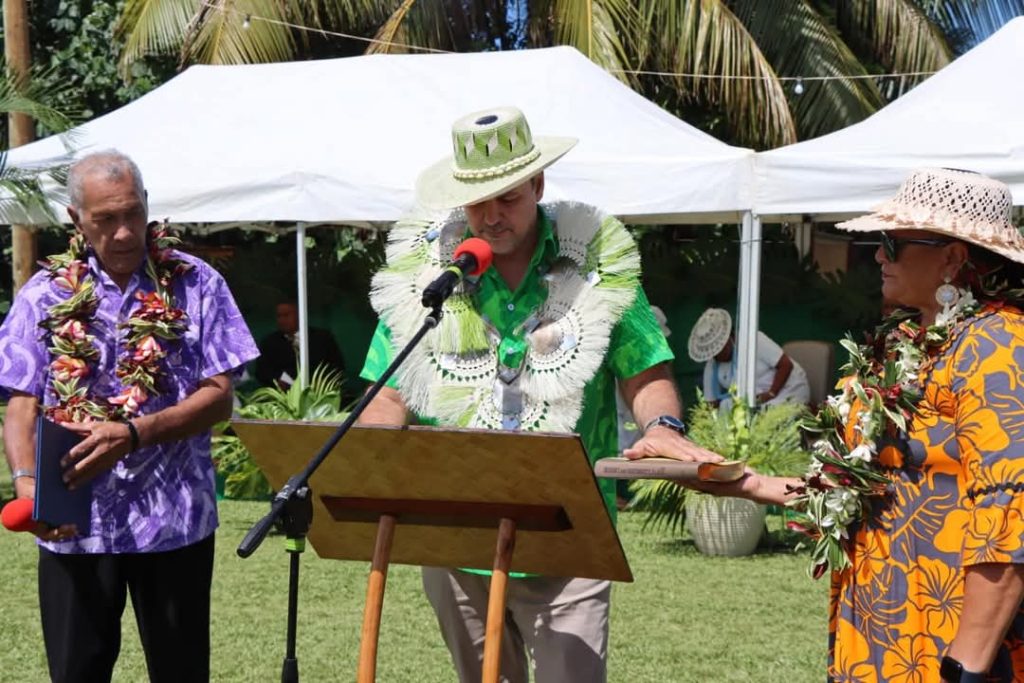
Tourism would be the biggest contributor to Aitutaki’s GDP.
Yes it’s easily over 70%. Without tourism, without the airport, we just turn the lights off. At the moment, we are putting most of our eggs in the one basket of tourism, and mainly because of the immediate benefits. If you’re a planter or a fisherman, you’re still involved in tourism. In the past, we had to export most of our product that we grew, or the fish that we caught, to Rarotonga to be sold. Now there’s enough demand that keep it on the island. We have a base population of less than 2,000, and we get 45,000 visitors a year. And they come with an appetite!
There are buzzwords in the tourism industry like sustainable, net- positive, and now regenerative tourism – what do these phrases mean to you?
It’s important to do tourism well so that it will still be successful in the years to come. Throughout Polynesia we’re raised looking after family and environment – it’s in our blood – it’s part of who we are. So when people bring these new terms, that’s what we practice anyway, it’s not new to us. Having said that, even on a small island like Aitutaki, we have a few operators who could do better. In my new role as Mayor, one of the outputs very soon will be establishing in standards and licenses. We want to license every single business on the island.
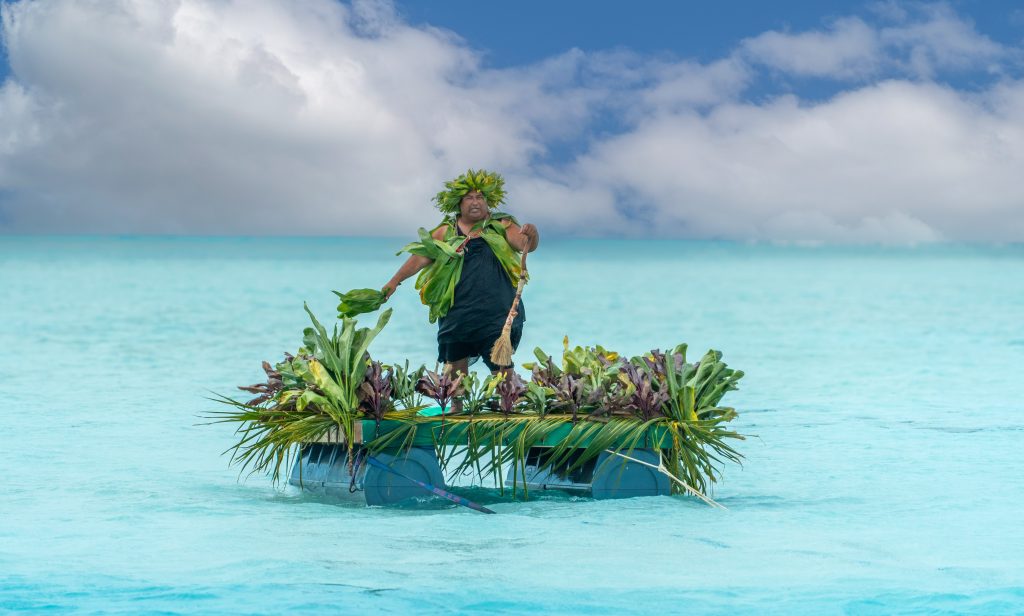
How do you think that will bring positive change?
Firstly, we want to have a good standard, good service delivery, and quality product. Licensing doesn’t necessarily ensure that, but it certainly gives you some teeth when you need to penalise people who are not being honest with their product. It is a balancing act for myself and our council, because we’re related to everybody! But I’m confident that once people start to see the benefits it’ll work.
Secondly, we do have challenges and like a lot of small communities there’s depopulation. In Aitutaki, our tourism industry is successful, so if we share the wealth better, it allows opportunities for young families to participate. We want to encourage people to specialise in one or two areas, not try and do a bit of everything. If people can focus and improve their service or product, we will develop better yield.
How does that translate to the young people of Aitutaki do you think?
I’m one of the guys who goes to school on the island at the end of the year and tells all the students to leave the island. The teachers are horrified. The thing is, if all they know is Aitutaki, then they never understand how amazing it is. When they go out into the big bad world they see how things operate out there. Then they come home and keep saying, ‘Wow – we’re so blessed to live here!’ People become more responsible with the island and are more driven to think of ways to protect it.
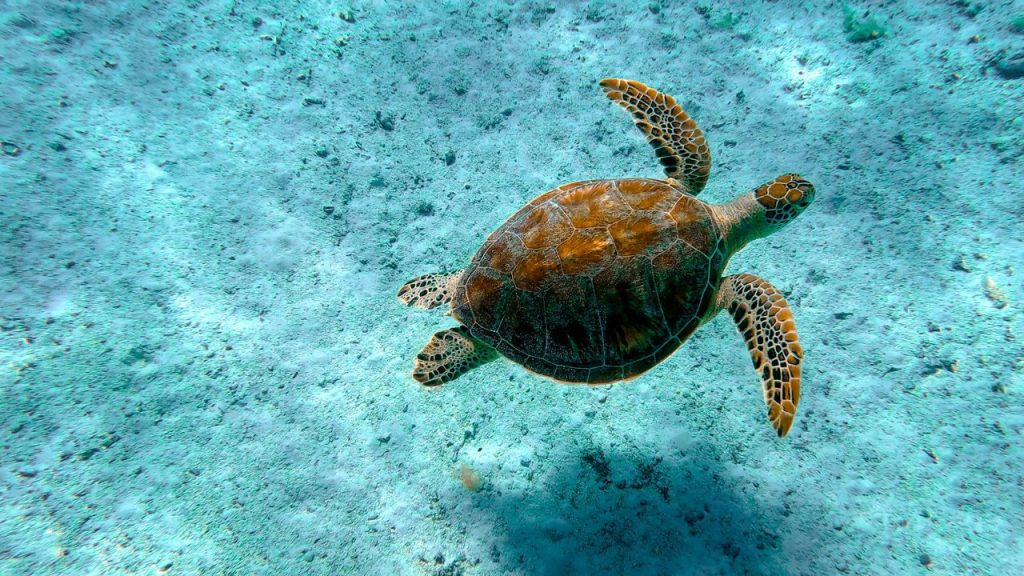
Where do people typically go to study?
Fortunately, because Cook Islanders have New Zealand passports, it is very easy access straight into NZ tertiary training. We still have to pay for it, like everybody, but we’re treated like Kiwis. There are some special Pacific Island entry routes as well. Our challenge is to know what the young ones are studying, and make sure there’s an opportunity for them when they’re ready to come home. I want them to go and work in Australia and New Zealand, and everywhere else, and then come back with that experience, maybe even a little bit of money, and tell us how we can do it better.
A big rate limiting step to growth is digital connection- how online is Aitutaki?
We’ve got fibre optics. We have our own ocean cable that runs across the reef and under the ground. Starlink has been a gamechanger as well, you can be online anywhere in Aitutaki and if you’re smart enough you can hook up two or three homes to one Starlink account and there’s more than enough bandwidth for everybody.
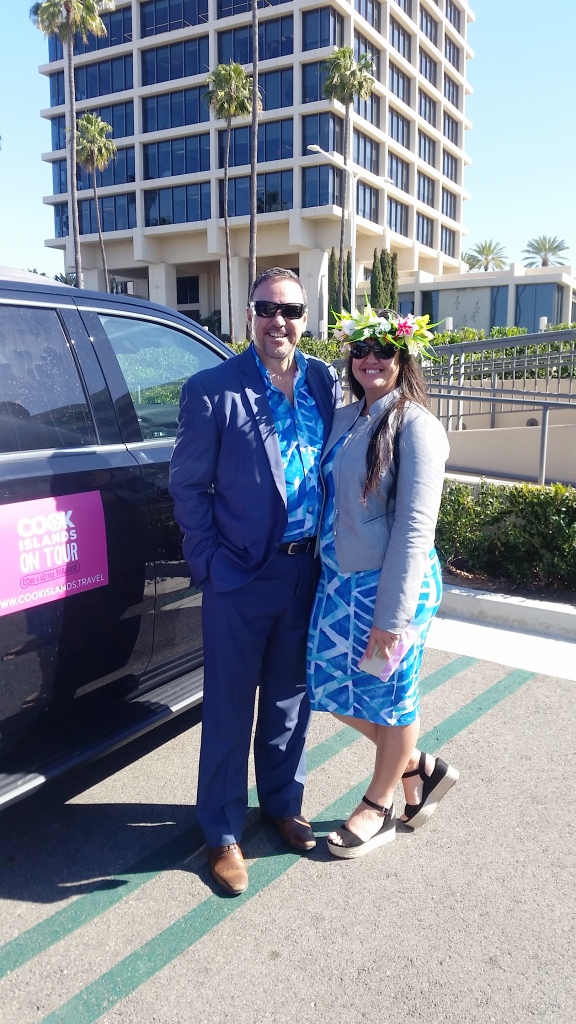
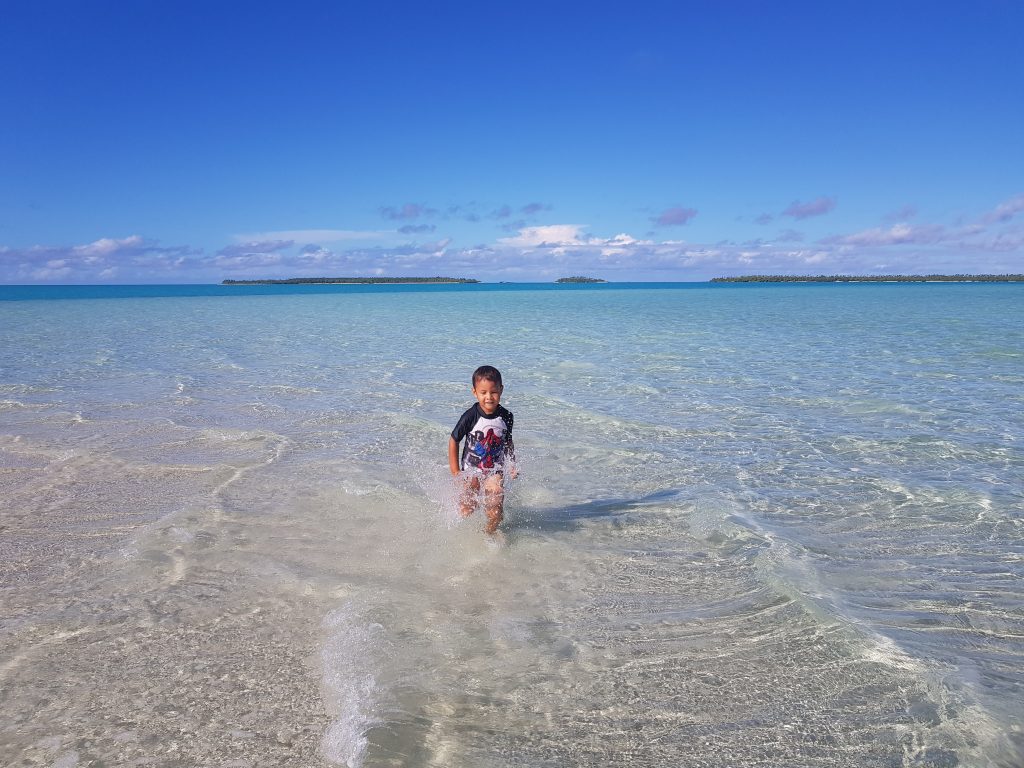
And what would you say to someone who wants to step into a leadership role?
I’d say if you want to get into politics or any kind of leadership role, the moment that the thought or feeling hits you, write down on a piece of paper why you want to do this. Then when you get to that leadership role, and you’re struggling in the middle of the night with a decision, you read that piece of paper. If you’re no longer in that position for that reason, I suggest you stop doing it.
What was on your piece of paper?
I’m not telling you. My wife doesn’t even know what’s on that piece of paper
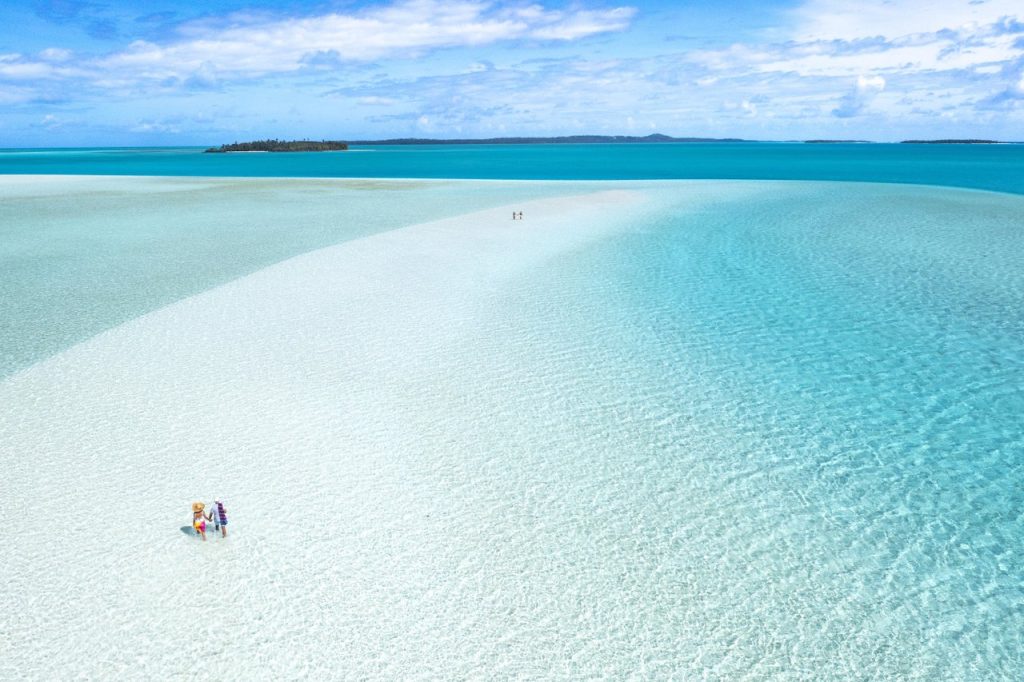
Your grandfather Albert Henry was the first Premier of the Cook Islands? Can you tell us a bit about him.
He’s kind of regarded as the father of the nation. We became self-governing in 1965 and he was our first Premier. It was a great experience as a little boy, turning up to a public events with my grandfather. It was a real privilege. He died in 1981 but he’s still constantly referred to during public events. He did a lot of good things for our country, and tourism was his vision. He was responsible for our international airport, our first international resort.
It was all government driven, government built, government owned. He was a very gentle man and not only was he a good leader, he was an exceptional orator. He won people’s hearts because he was such a good storyteller.
What do you remember about him now you’re in office yourself?
I recall a time when we were in his car- it was a pretty flash car- a Holden statesman- and in those days, very few people had a car. He would ask his driver George to stop if he saw someone needed help. I remember we picked up a lady once who was carrying a lot of vegetables from the market, and dropped her home. He could talk to anyone. He had humility. I learnt you can be proud and humble. He told us at some point in your life, you’ve got to do your public service. I think if more people did that, who looked at how many years they have on the Earth, and think I’ll give 3 or 5 to my community, we’d have a much better place to live. We’d be more unified, and more understanding of everybody’s needs. More respectful of each other.
One year, during Te Maeva Nui which is our Constitution celebrations, and a great time to visit, the judges were taking a long time to put the scores together and tally up everything. So my grandfather gets up, and asks his cabinet ministers to join him, and they sang a couple of songs to keep everybody entertained. As the whole event was being broadcast there was a recording- and they made a little LP with it. He was a fun guy.
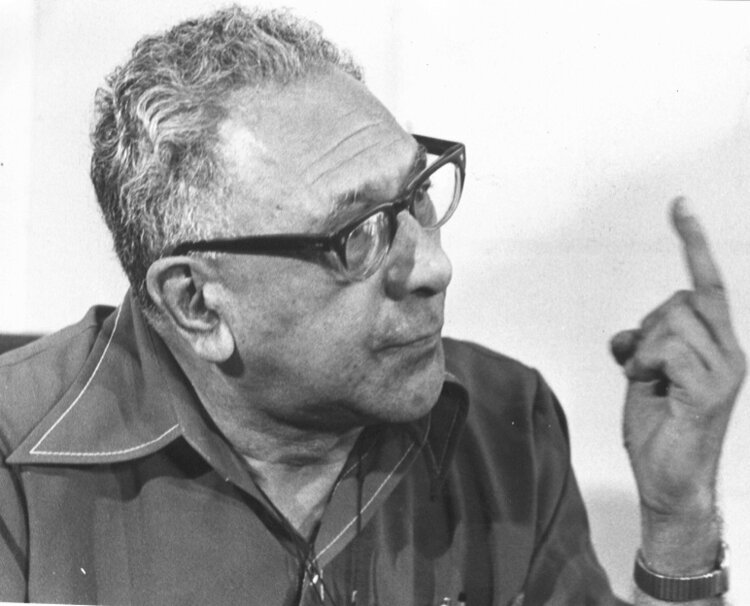
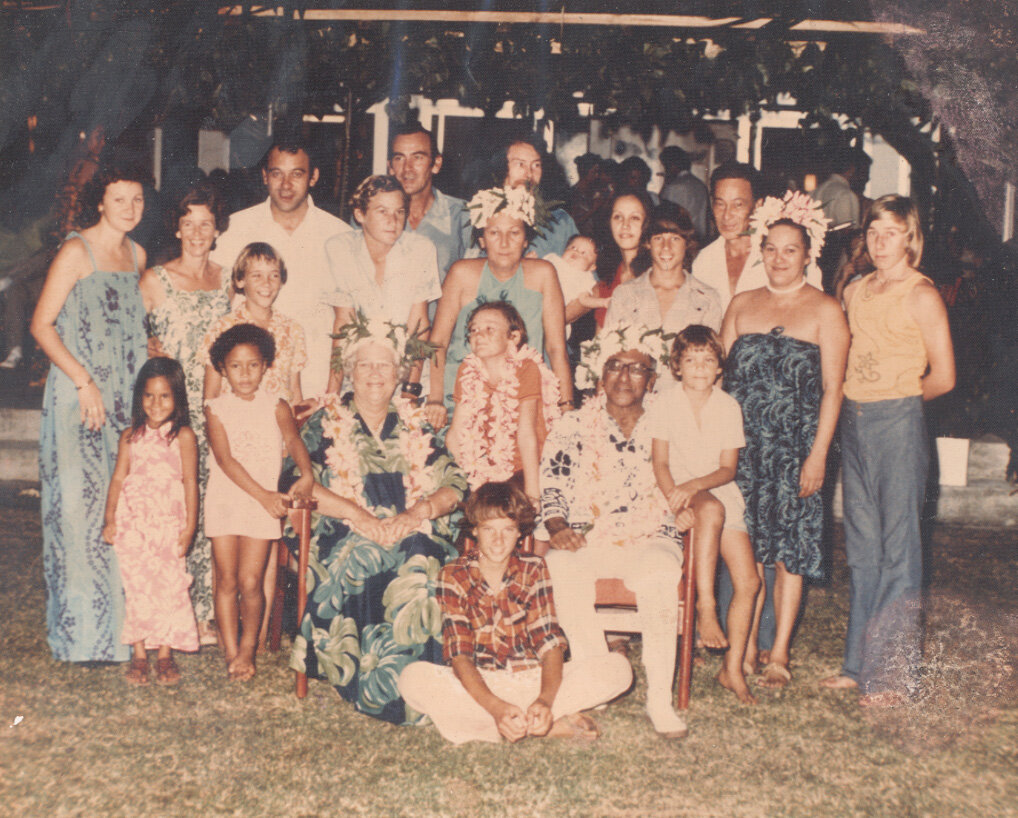
And he was one of the pioneers of the South Pacific Forum, which became the Pacific Islands Forum we have now?
Yes, along with the leaders from Fiji, Samoa, Tonga and Nauru. One of the stories I remember from this time is that back then they said, my grandfather was one of the ones who said, ‘You know, we should bring New Zealand and Australia to the table.’ There was some resistance, and Albert said, ‘No, if we bring them in we’re all equals.’ And that’s what happens today- the idea to give Australia and New Zealand and better Polynesian, Melanesian and Micronesian perspective. New Zealand and Australia back then in the 70s were run very much like a colony of Britain. So much of the English ways dominated the indigenous ways, and the forum brought more Pacific Island influence to decisions.
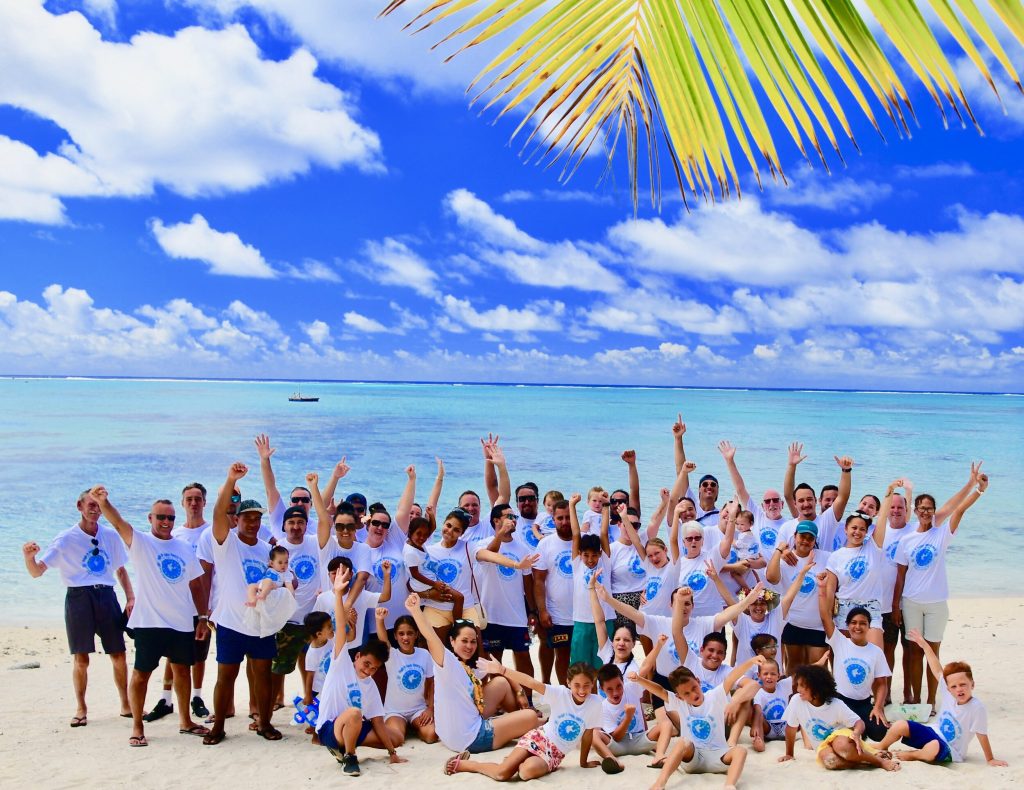
How do you see the future of ocean protection for the Pacific nations?
I respect each country’s decision around how they want to look after their oceans. Because there’s so so much movement and so little landmass in the South Pacific Ocean, the sea is amazingly clean compared to the North Pacific Ocean, which is bookended by land. I’ve sailed through the massive gyre of plastic north of Hawaii – they reckon its the size of Texas – it’s huge- and horrific. What I would like to see is better cooperation about not only plastics on the islands, but how we look after the creatures in the ocean. A tuna can swim around 600 miles a day. So who owns that fish when it can swim through three countries waters in a day?
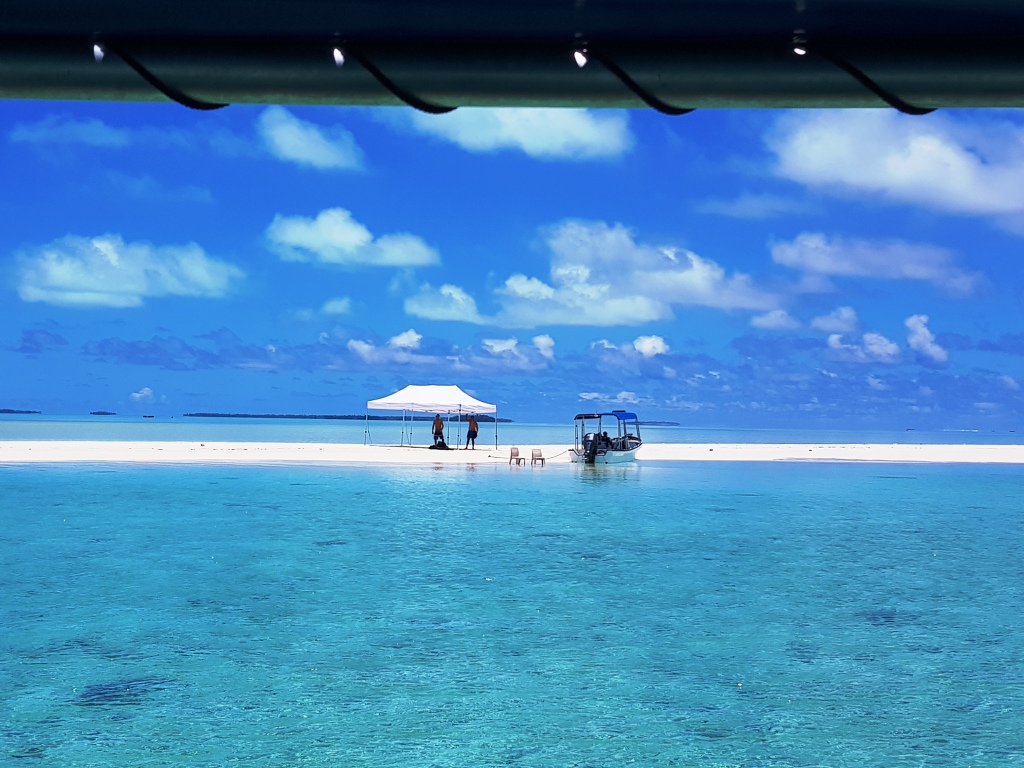
Do you envisage more co-operation with fishing? Is there a way to reduce bycatch?
Nowadays a Spanish or Chinese or Taiwanese vessel will buy a license to one countrie’s waters. If we could license the Pacific all the way from Australia, to Tahiti or to Easter Island then I think we could know exactly how much tuna’s being pulled out of our ocean. And we make it sustainable. Large fishing companies fish the heck out of one section of the ocean- they’ve already fished the Atlantic out of stock, and now they’re doing it to the Pacific. If we managed it collectively we could also share the revenues and stop overfishing in one area. The big international tuna fisheries just toss all the bycatch. They just dump it and its a lot of fish. It can be anything – turtles, mahi mahi, dolphins. Pacific companies wouldn’t fish like that. I believe they would manage stuff better.
There are moves to try and bring more fish processing back to the Pacific as well.
Yes, the fish should be Pacific owned, controlled, managed and sold.
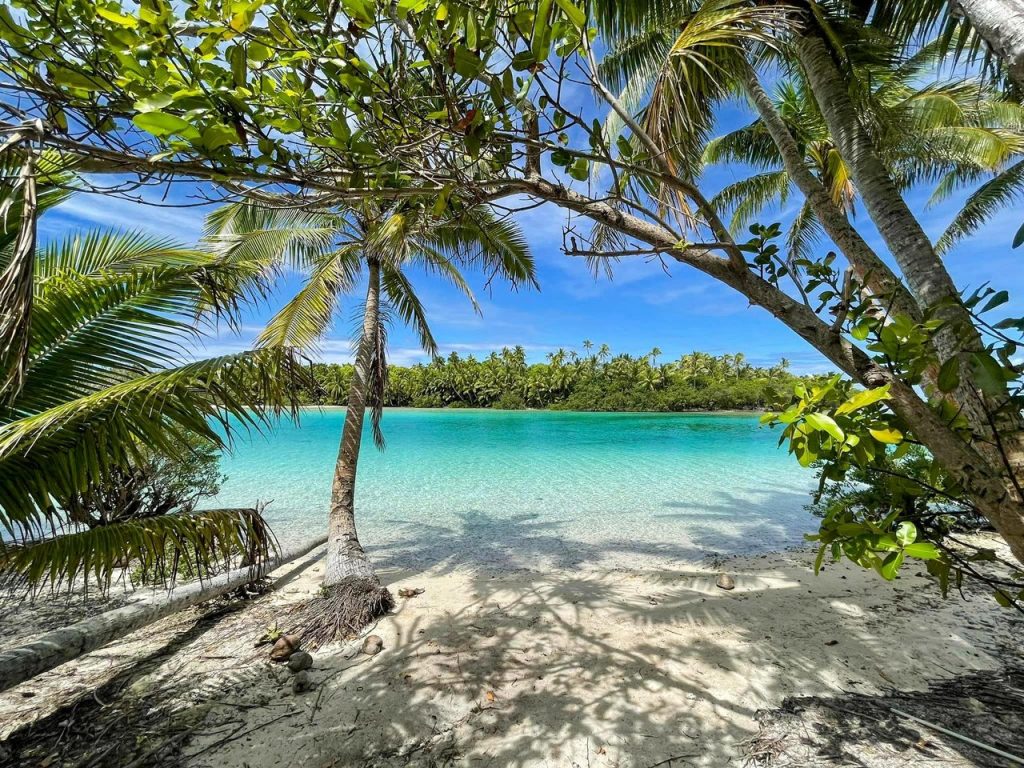
We love the songs you’ve selected for this article. You were a radio deejay for a few years?
I started a radio station 88FM in Rarotonga- out catchphrase is Boom Boom Baby. My mate George looks after it now. I look after the one in Aitutaki. We also have six TV channels in Aitutaki- our pictures out way better than other local TV channels- it’s all digital.
I started 88FM on 8th August 2008, we broadcast from the roundabout in town. There’s only one big roundabout so I sat in the middle of it with all my deejay stuff, and played music as everyone was going to work in the morning. We had bumper stickers, my friend Tim handed out croissants and coffee – it was a lot of fun. I did that radio show for years. I grew up with radio because there was no television on the islands when I was a kid. We used to listen to The Goon Show, The Shadow, Night Beat and Randy Stone. All us kids used to have so much imagination listening to radio.
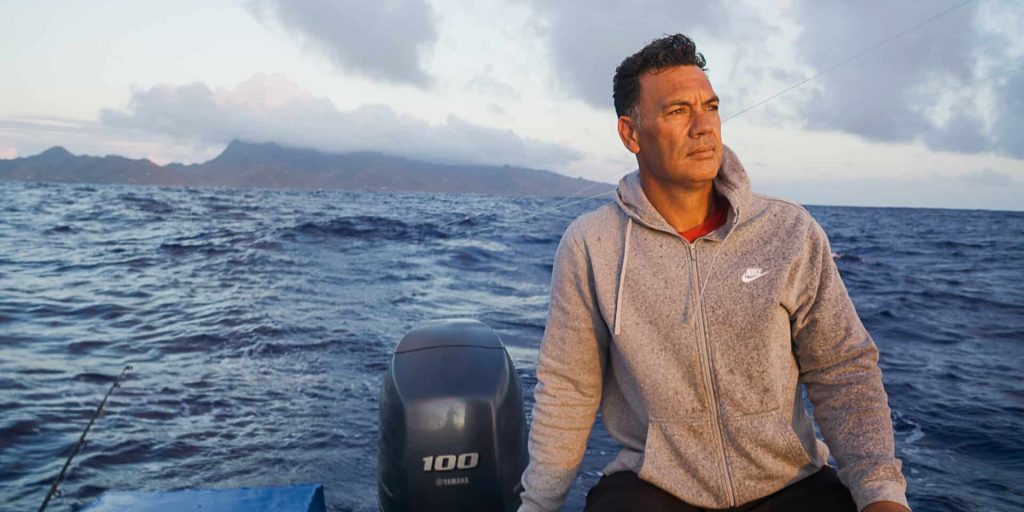
Who’s your local hero on the Cook Islands?
One of the guys that I think has been a good role model for young Cook Islanders is Kevin Iro. For years, he was the best rugby league player in the world. He started a program with young boys who were struggling at school. Kids who had been told they weren’t good at anything. He put them into a sporting program and made them believe that they were good. Once their sports went well, then their maths improved, all the subjects got better. And then Kevin was the champion for our world first marine protected area Marae Moana. He set up the first offices in his building to get it set up- he’s a legend. He won the 2022 Seacology Prize and rightly so.
Would you play rugby with him?
No way. His nickname is The Beast. He’s a pussycat off the field, but on the field, it’s scary. A few years back we had a rugby match against the New Zealand Maori team in Rarotonga. Kevin was coaching. This is long after his professional career. Second half we were down and he put his boots on and ran on the field. You could just see the NZ boys body language change, their shoulders dropped, heads down. Nobody wants to tackle The Beast. Needless to say we won the game.
What’s your favourite festival or event on Aitutaki?
Friends of mine Stephen and Poppy Doherty organised the Motu2Motu paddling event for years- it’s just sadly wrapped up. You ended up paddling in these mixed teams- a total pro, a novice, someone 80 years old, someone 18. It was a lot of fun. I’m hoping that somebody else on the island will pick it up and run with it, because the formula that he had was so successful.

What are your special places on Aitutaki?
One of my favourite views is from our home! My great- grandmother was gifted five acres of land on her wedding day. Now I have a half an acre of that. One of the incredible things about the Cook Islands is how we’ve maintained land ownership. It’s a little bit complex, but, for example, for me to get my half an acre, I didn’t pay anything for it. We had a cup of tea and brought the family around for a meeting, everybody agreed and it was done. The concept of landownership is very Polynesian. It’s this idea that it doesn’t belong to us, we belong to it. It puts a different perspective on what are you going to leave behind?
Assuming you don’t want everyone to come round to your house, any other top spots?
Honeymoon Island. On my 50th birthday, I went out to Honeymoon Island with just the boys, a really good bunch of guys, and we sat in the lagoon all day – it was amazing. My nephew cooked for us. We had grilled fish, fresh fish, sashimi, grilled steak. It was magic.
Sounds like the perfect place for the next Irresistible Magazine board meeting.
Absolutely. We’ve got you covered.
